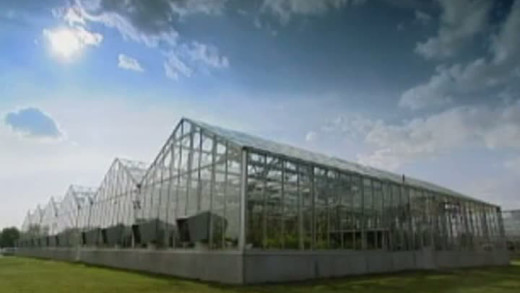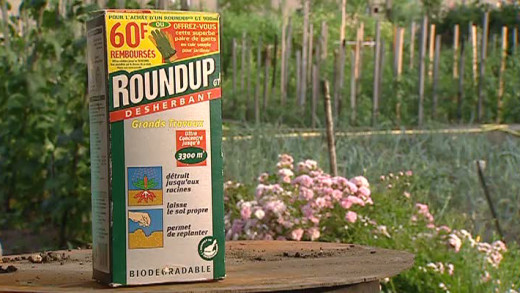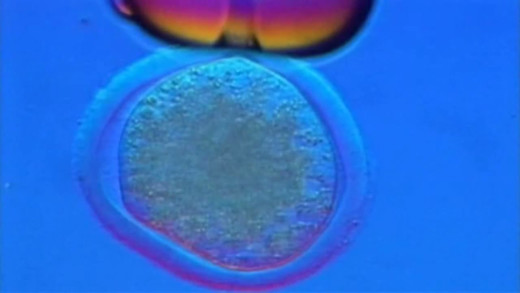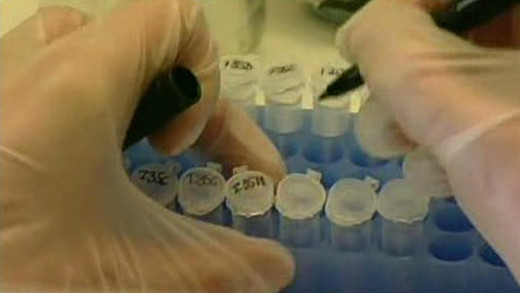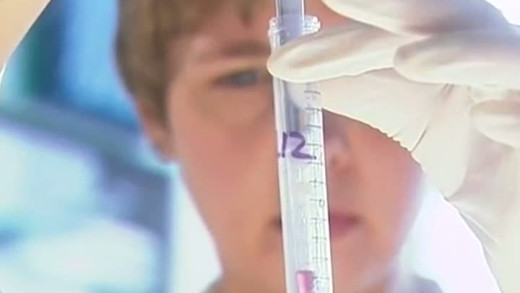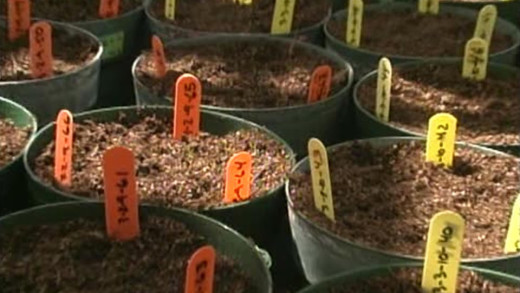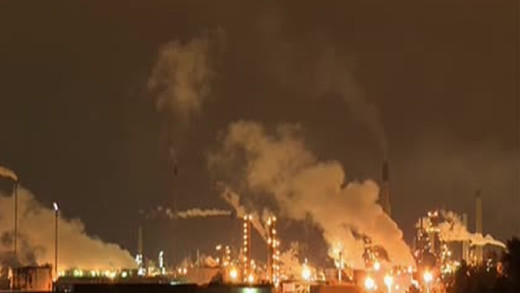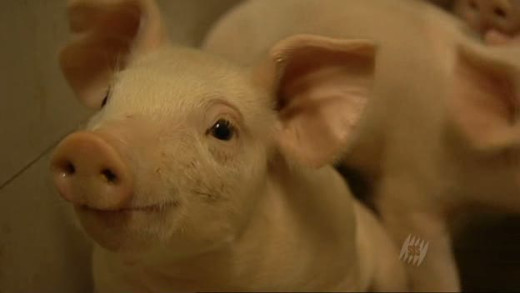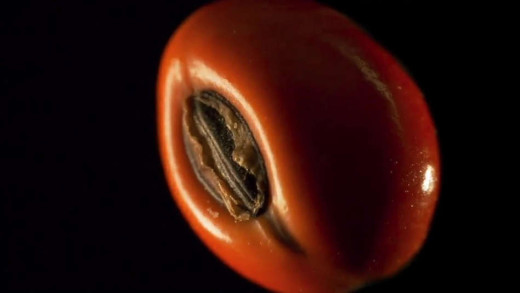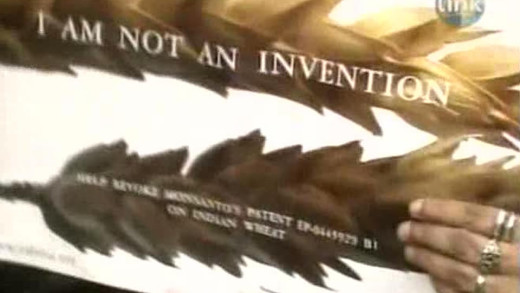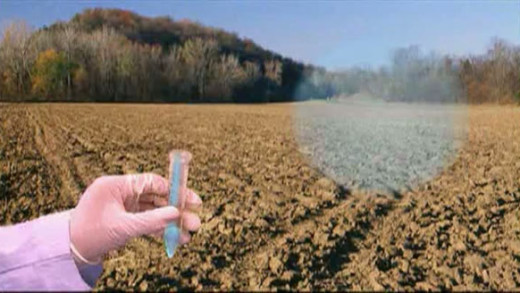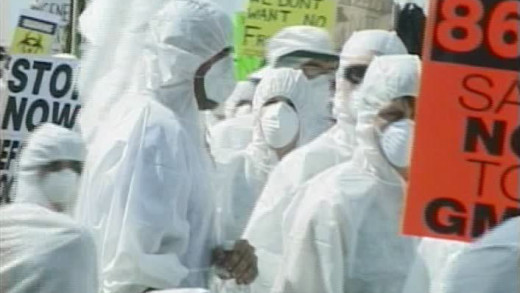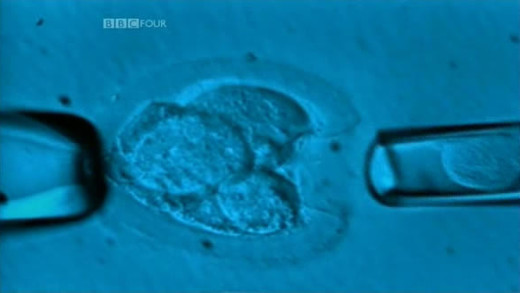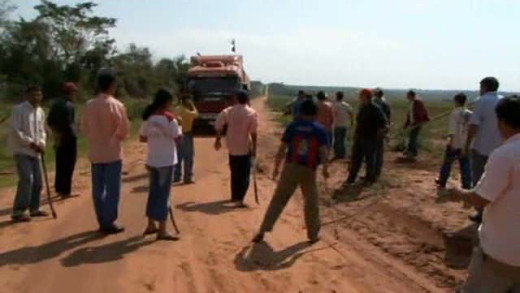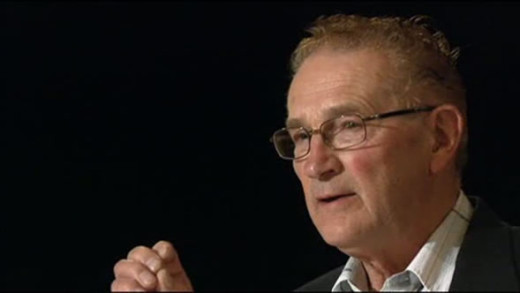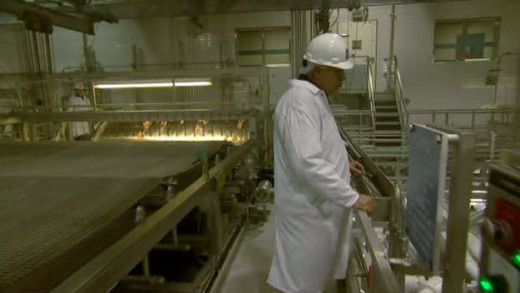The controversies of corporations owning DNA, enforcing patents on living species, and pushing Genetically Modified seeds and crops across the globe, come together in Life Running Out Of Control. The battle between corporations and farmers is central to the film, with rapacious corporations such as Monsanto making claims that they are "improving upon nature," only to be met with fierce opposition from farmers, activists and local communities that show this is not the case. The film also explores the issues of the loss of biodiversity, to health concerns about Genetically Modified food, to the effects of GMOs in the environment.
Monsanto corporation seems to be stopping at nothing: Controlling corn, wheat, soy beans, canola, mustard, okra, bringe oil, rice, cauliflower... Once they have established the norm, they aim to claim all these seeds as their intellectual property, royalties will be collected and enforced by patent law. If Monsanto controls seed, they control food and they know it. It's strategic. It can be more devastating than bombs, it can be more powerful than guns. This is their way to control the populations of the world, and as The World According to Monsanto reveals, it's governments in the cross-hairs also.
After many experiments with cloning and genetically manipulation on other species, technology and genetic science is now turning to the frontier of the human. Every parent wants their child to be healthy, but does this extend to picking their genes for them? What about those who are unable to have children naturally for whatever reason, who turn to artificial insemination or genetic modification? Is this designing children? What are the repercussions in a world dominated by genetically modified people? Will we evolve into a new species and transcend our history to one of inclusion and harmony? Or, will we simply end up in a world that is further divided -- by genetic apartheid?
A failed GM cotton crop prompts farmer suicides in India. Windborne GM canola contaminates organic and conventional farms in Canada. One farmer fights Monsanto in the Supreme Court. A company seeks approval for giant GM salmon that may threaten the survival of the natural species. GM pigs are born with ghastly mutations. And experts reveal how inadequate testing and regulations put us at risk. Featuring interviews with Vandana Shiva, Andrew Kimbrell, Percy Schmeiser and others, this documentary reveals several harsh consequences of genetic engineering worldwide...
Ever since February 1997, when genetic scientists first unveiled 'Dolly' the cloned sheep, has genetic engineering pushed towards the desire to clone and genetically modify human beings. Since then, cloned cattle, pigs, goats and mice have been produced amongst other things, fuelling the belief that humans can be next. But what are the problems with this manipulation? Cloning The First Human follows the latest research, which not only shows complications from an ethical position, but much more dangerous ones too...
In the "race to feed the planet", scientists have discovered how to manipulate DNA and produce what they claim are stronger, more disease-resistant crops. However, fears that Genetically Modified Food may not be safe for humans or the environment has sparked intense protest. Are we participating in a dangerous global nutritional experiment? This film asks is the question -- is the production of genetically modified food a panacea for world hunger or a mass poisoning of the worlds food supply?
The Idiot Cycle investigates six major chemical companies—Dow Chemical, BASF, Bayer, Dupont, Astrazeneca and Monsanto—that are not only responsible for producing decades of cancer causing chemicals and pollution all across the globe, but also profit extensively from controlling cancer treatments and the production of drugs for those treatments. The irony is palpable. Also examined is how these very same companies own the most patents on genetically modified foods that have also never been tested for long-term health impacts like cancer. When there's dioxin in every mother's breast-milk, rivers throughout the world that no longer support life, cataclysmic environmental damage from industry and manufacturing—when do we say enough is enough?
Patent applications for the "Monsanto Pig" were published in February 2005 at the World Intellectual Property Organisation (WIPO) in Geneva. A researcher monitoring patent applications uncovered the fact that Monsanto is seeking patents not only on methods of breeding, but on actual breeding herds of pigs as well as the offspring that result. And as the seeds of the world are slowly being taken over by Monsanto, the company is aiming to extend its control to animals by patenting and thus privatising gene sequences--all of which are found and occur naturally and are not invented...
Miraculous and vital, Seed--The Untold Story follows passionate seed keepers that are tirelessly working to protect a 12,000 year-old food legacy. For only in the last century, 94% of seed varieties have disappeared, as biotech and chemical companies rapaciously took over control over the majority of the world's food seeds. Farmers, scientists, lawyers, and indigenous seed keepers fight literally a battle for life to defend the future of food. In a harrowing and heartening story, these heroes rekindle a lost connection to a treasured source of life, and revive a culture connected to food, and the Earth.
Bullshit follows environmental activist Vandana Shiva as she travels around the world to in her quest to eliminate the use of genetically modified foods and seeds in her home country of India and other developing countries. Shiva argues that the “ownership of life” through the patenting of natural products, namely grains altered through genetic modification (GMOs), is not in our best interests, and is in fact harmful to agriculture in developing countries...
Is genetic engineering really dangerous? The manufacturers claim that genetically modified food "produces higher yields, fights world hunger, and reduces the need for pesticides." But at what cost? Following the Trail questions whether any solid testing has been done to determine the safety and risks of genetically engineered foods and examines evidence to test the veracity of the claims made by genetic engineering corporations that the foods produce 'higher yields, fight world hunger' etc...
The Future of Food brings together the many complex issues surrounding the troubling changes that have occurred in the industrial food system during the past decades—genetically modified food, seed patenting, pesticides; and the corporate takeover of the entire food chain, from soil to seed to fork. The issues raised in The Future of Food are more pressing than ever, as the collusion between governments and large multi-national corporations is more visibly on display than ever before—the use and abuse of the legal system, politicking, and privatisation drive this rapacious strangle hold on much of the world's food. The film focuses on unlabelled, patented, genetically engineered foods that have been sold in supermarkets in the United States, unbeknownst to the public, for the past decade. In addition, there is a focus on Canada and Mexico. Also described is the concern about 'terminator' GMO seeds that pose a huge threat to diversity and local food systems. Genetically modified food is as controversial today as ever, and The Future of Food presents a vital educational tool for activists and educators worldwide.
As the biotechnology industry spends more than $50 million a year to convince us that 'genetic technology' is our only hope for feeding the world and saving the environment, toxic agricultural chemicals continue to poison the air, food and water and put farm workers in serious danger. So what's the real problem? Using archive footage and interviews with farmers, scientists, government officials and activists, Fed Up With Genetic Engineering presents an overview of the current food production system, exploring the impacts of pesticides, the resistance of biotechnology companies to food labelling and the links between government officials and major biotechnology and chemical companies...
The Biotech Revolution is largely an exploration by scientists working in genetics and biotechnology that repeatedly promise "unprecedented health benefits and longevity for all," amongst other things, to rationalise their work in the so-called "biotechnology revolution." But in reality, isn't this "revolution" simply just more of the same control imperative of science and this culture's technology, essentially ending in the prospect of a monoculture of genetically modified people? Will such control foster into globalisation a history of inclusion and harmony? Or, will we simply end up in an extension of the current order, albeit one that is further divided, this time by genetic apartheid?
Paraguay's Painful GMO Harvest reports on a nationwide peasant uprising against farmers of genetically-modified soya who are seen as colonists partly responsible for the almost total deforestation of the eastern provinces...
Did you know that the legal system recognises a corporation as a person? What kind of 'person' is it then? What would happen if it sat down with a psychologist to discuss its behaviour and attitude towards society and the environment? Explored through specific examples, this film shows how and why the modern-day corporation has rapaciously pressed itself into the dominant institution of our time, posing big questions about what must be done if we want a equitable and sustainable world. What must we do when corporations are psychopaths?
The Quantum Revolution spouts claims of turning many ideas of science fiction into science fact—from materials with mind-boggling properties like invisibility through to so-called "limitless quantum energy" and room temperature superconductors, to a space elevator for tourism. Are such developments worthwhile, sustainable, equitable or even necessary? Scientists forecast that in the latter half of the century everybody will have a personal matter fabricator that "re-arranges molecules to produce everything from almost anything." Yet how will those in power ultimately use the domination of matter and life on Earth? How is science already doing this and to what ends? What are the unasked questions about science itself and the desire to control the very fabric of the universe? What insanity are we up against?
Imagine that a storm blows across your garden and that now, without your knowledge or consent, foreign and genetically-modified seeds are in your vegetable patch which you have nourished and maintained for over 50 years. A few days later, representatives of a large multi-national corporation secretly visit your home, only to return later and demand that you surrender all your vegetables and seeds. Then, they file a lawsuit against you for the illegal use of their patented and genetically-modified seeds that you never planted or used and, what's more, the court rules in favour of the corporation. Yet, you still fight back. This is the true story of Percy Schmeiser versus Monsanto.
The Way of All Flesh traces the story of Henriettta Lacks as she dies of cancer in 1951. Before she died cells were removed from her body and cultivated in a laboratory by scientists in the hope that they could find a cure for cancer. The cells known as the HeLa line have been growing ever since, and the scientists found that they were growing in ways they could not control. The cells transformed modern medicine, the Polio vaccine, but they also became caught up in the politics of our age, shaping the policies of countries and of presidents, and even becoming involved in the cold war, as scientists were convinced that in her cells lay the secret in how to conquer death.
Food Inc.
What does the corporate-controlled food industry look like? Film-maker Robert Kenner lifts the veil on today's food industry, exposing the underbelly that has been hidden from view of the consumer with the cooperation of government regulatory agencies such as the USDA and FDA. The food supply is now controlled by a handful of corporations that put profit ahead of consumer health, the livelihood of the farmer, the safety of workers and of course, the environment. We have bigger-breasted chickens, the perfect pork chop, herbicide-resistant soybean seeds, even tomatoes that won't go bad. But we also have new strains of E. coli—the harmful bacteria that causes illness for an estimated 73,000 Americans annually; are riddled with widespread obesity, particularly among children; and an epidemic level of diabetes among adults. And the whole mess is exacerbated by opportunistic politics—the tools of Big Agriculture running the very regulatory agencies that are supposed to protect the public—and consumers who have become accustomed to eating whatever they want whenever they want, in quantities they don't need...
